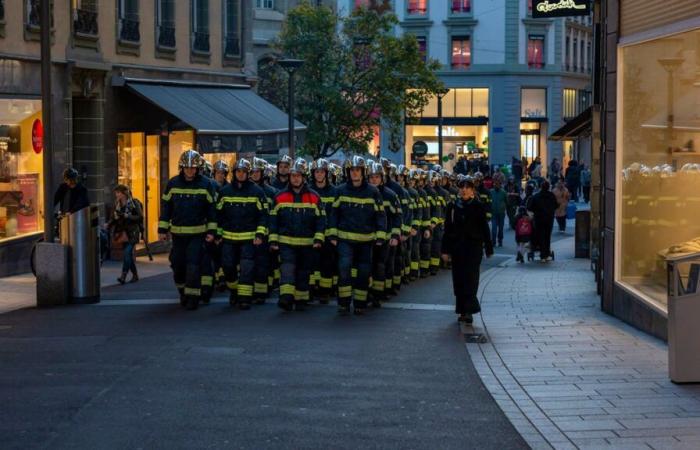Throughout Lausanne, this Tuesday, passers-by were able to see an unprecedented image: in fire gear, around sixty professional firefighters marched in step, demonstrating wisely but firmly in a standoff that pitted them against the Municipality. Their procession, between their barracks and the municipal council room, was intended to give weight to an inquiry filed by the elected representative of Ensemble à Gauche Pierre Conscience, who is bringing their demands to the plenum. “The Lausanne firefighters are fed up, it’s a cluster of several things,” describes deputy Frédéric Splendore.
The object of discord: working conditions. “They face physical hardship and restrictive schedules,” writes the South union, which supports them. The interventions can be very intense, dangerous or very long, and the working hours are 50 hours per week. However, for years, they have been asking for adjustments for their end of career, “which have still not been implemented, despite a notice from the Municipality adopted by the Municipal Council in 2014”. “We also experience inequalities in compensation compared to other night services,” continues Frédéric Splendore, before listing several more contentious points.
It finally recently opened the discussion, but “by linking it to possible further worsening of retirement conditions”, denounces the union. Who demands immediate action before any further discussion. Especially since he also denounces staffing and management problems, as well as pressure on schedules which makes it ever more difficult to reconcile work and private life.
Asked during a previous round of the standoff, the City responded point by point, explaining in particular that the end-of-career measures were acquired, without the need to review the legal framework. “People who are affected by their health and can no longer carry out their professional activity are supported individually,” explained a communications manager. In short: case-by-case treatment like today is enough. “Not all requests can always be met, which is normal in an employer-employee relationship,” he concluded.






